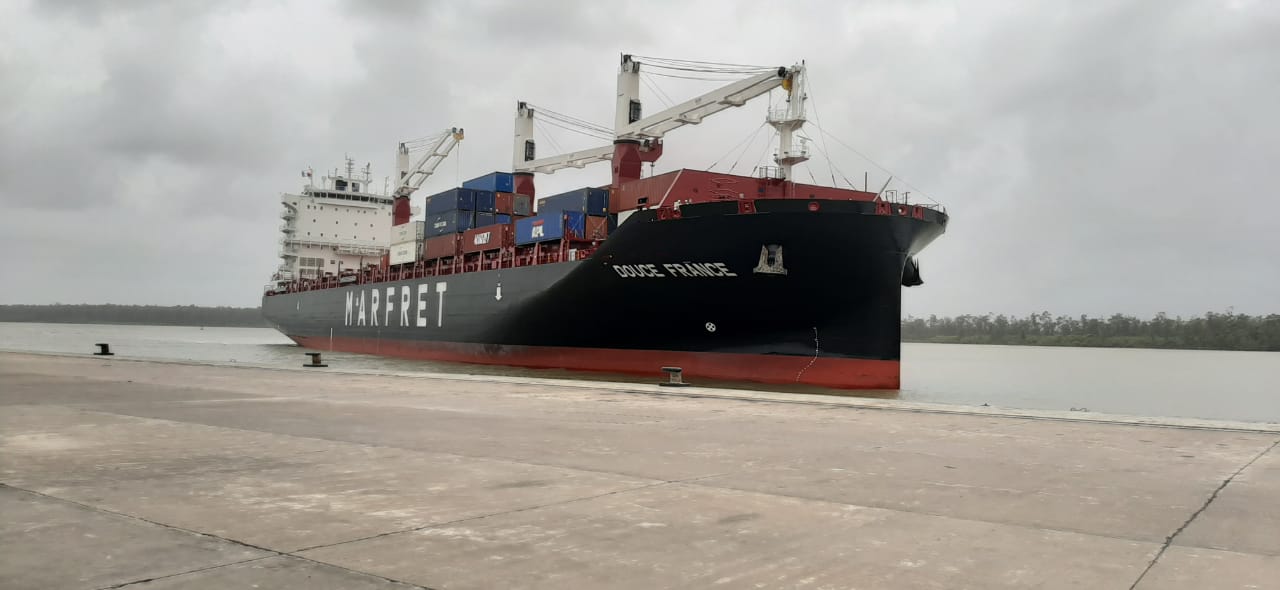
Safeguarding nations’ supply chains
Attending the launching ceremony for our container ship Douce France at the Yangzijiang Shipyard on the Yangtse on 19th January last, I was able to gauge the full extent of the Covid-19 epidemic taking hold in China, one that was to engulf the entire world in just a few weeks. The lung infection knows no boundaries, raging across the planet at incredible speed, like the forest fires that ravaged Australia a few months earlier. Everything possible is being done to contain the emergency and to overcome this unprecedented worldwide sanitary crisis. A crisis nobody saw coming.
Governments are redoubling their efforts, putting up barriers, erecting ramparts to slow the devastating pandemic’s course. After China and Europe, it is now continuing its macabre work in the United States, Africa Latin America and the Caribbean, islands and continents we call at and in which we have friends.
Behind the invisible enemy we are facing lingers another threat, just as invisible for the world’s populations. As the UN Secretary General António Guterres reminded just recently, an interruption of the supply chain could lead to food shortages. At a time when almost all passenger aircraft are grounded, shipping –which already accounted for 90% of world trade- is more than ever playing a strategic role and providing a vital link, since it brings food to people and guarantees the flow of medical equipment and pharmaceutical goods.
In recent history, Marfret has found itself at the heart of battles in which food security has been threatened. In 2014, Russia set up an embargo against imports of foodstuffs from Europe; climate change forced Australian and New Zealand farmers to slaughter livestock due to a lack of fodder caused by drought; and in late 2019, China started to import on a massive scale after an outbreak of swine fever.
France enjoys a unique position in the world. Ours is a traditionally rural country with a temperate climate producing abundant fruit, vegetables, cereals and dairy products. Poorer countries, with less favourable climates, or islands, do not have our production capacity and depend totally on supplies by sea.
More than ever, the direct, fixed-day port call, as provided by our ships, genuine floating storehouses, is eagerly awaited by wholesalers and hospitals alike as far away as Papeete, Algiers or Moin in Costa Rica. Since the beginning of the health crisis, Marfret has redoubled its efforts to keep this supply chain open. As a French shipping company, Marfret is tasked with supplying our overseas compatriots in Oceania, the West Indies and French Guiana. In this role, French-flagged vessels, bulk carriers, container ships and ferries, are a strategic asset for the nation. The supplies delivered provide a new lease of life for the distant populations in need.
Even if manufacturers are currently pondering a re-localisation of production, globalisation will not end, since the world’s economies will remain interdependent. But this re-localisation can open new avenues for cooperation in the north-south coastal routes, an area in which our company has a strong position, thus addressing both environmental and economic issues.
In these difficult times, in which we must rely on dead reckoning, my thoughts are with you and your families, with our importer and exporter clients, the port authorities and service providers. I would also like to thank the Marfret staff who have been at their posts since the first day of confinement to keep our services running. A particular mention, though, must go to our crews, some of whom have been at sea for long months with no prospect of being relieved. I thank you for your resilience and for your unfailing commitment.
Raymond Vidil
Illustration: the Douce France during its first call in French Guiana on March 18th. The ship unloaded 350 containers, half of which were intended to supply the population with food and pharmaceutical equipment in the territory under containment.